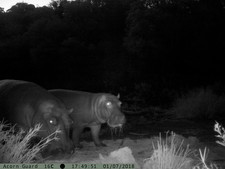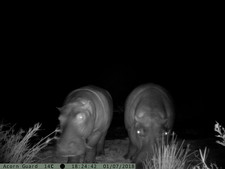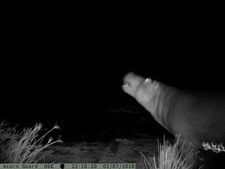It was a significant and historic moment when hippos recently splashed into the Bushmans River coursing through the beautiful Amakhala Game Reserve in the Eastern Cape province of South Africa. The Amakhala team is delighted to welcome back this iconic species to the reserve’s ecosystem, which is an ideal habitat for hippos.
Formerly widespread throughout South Africa, particularly in the KwaZulu-Natal, Mpumalanga and Limpopo provinces, hippos has been reintroduced into the Eastern and Western Cape. Historic sight records in CJ Skead’s book ‘Historical Incidence of The Larger Land Mammals In The Broader Eastern Cape’ show that hippos were endemic to the Eastern Cape in the 1900’s. According to PW Coetzee, cited in Skead’s book (2007:78), historical evidence exists of hippos having roamed along the Bushmans River, which snakes through Amakhala. In the early 1940’s, hippo teeth were found along the banks of the river on the ‘Bolton Woods’ and ‘Longlee’ farms.
Hippopotamus (Hippopotamus amphibius), which means “river horse”, are generally considered to be the third largest living land mammal, after elephants and white rhinos. Male hippos can weigh 1600 - 3200kg and female hippos weigh between 655kg and 2344kg. Just a hippo hide alone can weigh half a ton!
Surprisingly, the closest relations of the hippo are cetaceans, such as whales and dolphins. Scientists believe this family of animals diverged in evolution around 55 million years ago.
With only four toes, hippos are herbivores, grazing at night and chilling in the river by day.
Unfortunately, hippos are facing significant habitat loss due to human encroachment. As ever more land is cleared for agriculture, these two-ton vegetation-consuming herbivores face a serious threat to their survival.
Their new home at Amakhala provides a perfect habitat, providing a large and safe area for the hippos to make their own. It is also a significant moment for the Amakhala team on their quest to return the land back to its magnificent indigenous wildlife.
Happy Hippo |
 |
 |
Watch this space for updates as the Amakhala team monitors the impact of the hippos and augments their grazing impact over the next few months.



.jpg)










